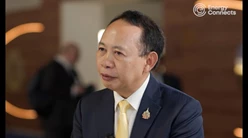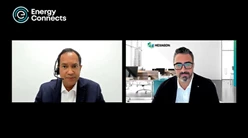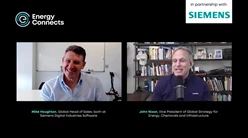NATO Faces Call to Invest in Clean Fuel to Cut Russian Reliance
(Bloomberg) -- NATO members should boost their spending on renewable power and low-carbon energy to end their dependence on Russian oil and gas imports, according to a group of military veterans and defense experts.
The European Union paid almost €22 billion ($25.5 billion) last year for fossil fuel imports from Russia, more than the €19 billion it gave Ukraine in financial support, the group said in a letter to European heads of government ahead of their meeting in Brussels on Thursday. The EU’s spending on Russian gas imports since February amounts to 75% of Russia’s military budget last year, they wrote.
“While the EU has pledged to stop Russian oil and gas imports by the end of 2027, progress isn’t being made quickly enough,” the group said. “Whether imported from Russia or elsewhere, a reliance on fossil fuels makes our countries less secure.”
Signatories of the letter include retired Lieutenant General Richard Nugee, a former non-executive director for sustainability at the UK Ministry of Defense; retired General Tom Middendorp, a former chief of defense of the Netherlands; and Sylvie Matelly, the executive director of the Jacques Delors Institute.
The letter argued that energy price hikes in times of conflict, or a risk that key suppliers could halt exports, make NATO members more vulnerable. In its war with Ukraine, Russian armed forces have targeted large power stations, though Ukraine’s vast network of wind turbines and solar panels has proved harder to destroy and has helped keep the lights.
In 2025, members of the North Atlantic Treaty Organization committed to boosting their military spending to 5% of their gross domestic product, including 1.5% non-core defense spending to protect critical infrastructure, defend power networks, ensure civilians are prepared and resilient, and strengthen the defense industrial base. Energy sovereignty would fall within that remit, with more investment in renewables and sustainable fuels having the additional benefit of cutting greenhouse gas emissions and helping tackle climate change, the letter said.
“The NATO 1.5% target presents an historic opportunity to incentivize investments in clean energy that will keep us safe, bolster our economies and help protect the planet,” the veterans wrote.
©2025 Bloomberg L.P.





